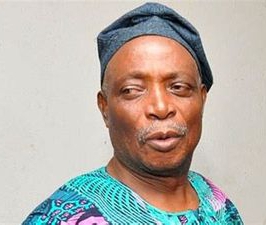Sunday OGUNKUADE
Of the hundreds of events that happened in the years pre-20th century Yoruba history, the Yoruba Peace Treaty of September 23, 1886 is a unique document of incalculable importance. This foremost document was designed to foster unity and promote peace among Yoruba people, who are Black Africa’s largest tribe in terms of population and leadership in civilization.
Representatives of virtually all kingdoms and ethnic sub-groups of the Yoruba nation appended their signatures to this treaty – from the Alaafin of Oyo to the Ooni and chiefs of Ife, the then chiefs of Yorubaland’s most powerful city of Ibadan, the kings and chiefs representing the large alliance known as the Ekitiparapo comprising the Ekiti, Ijesa, Igbomina and Akoko subgroups, the Awujale and war-chiefs of Ijebu.
Its terms and statements had reference to virtually all parts of Yorubaland. Its immediate purpose was to bring to an end the Kiriji War, the war between Ibadan and the Ekitiparapo allied forces in 1878, which later widened to involve almost all other kingdoms and states of Yorubaland – the Ooni’s kingdom of Ife, the Modakeke kingdom near Ile-Ife, the Alaafin’s kingdom of Oyo, the Awujale’s kingdom of Ijebu, the Egba and Owu kingdoms of Abeokuta, the Remo kingdoms, the kingdom of Owo, the kingdom of Ondo, the kingdom of Ilorin, the kingdoms and communities of the Okun Yoruba in the Yoruba northeast, the kingdom of Lagos, the kingdoms of the Ilaje and the Ikale, even the far western Yoruba kingdoms of Ajase, Ketu and Sabe (now in Benin Republic).
The 1886 Treaty was a treaty affirming peace, brotherliness, friendship and commerce among all Yoruba people after nearly 100 years of internecine wars that pitched one Yoruba kingdom against another in different theatres, cities against cities and alliances against alliances.
However, my humble thought is that we Yoruba should use the 1886 Yoruba Peace Treaty as template to rub minds about some deep issues of our nation’s unity. Surely, we are a very strongly united nation. It is not an overstatement to state that, hardly any nation in the world can claim to be more united than Yoruba nation. Yorubas are very proud of their culture and great accomplishments in civilization. Among nations in the world, Yoruba nation deserves to be highly exalted because of the common worldview and the principles and ideas which we evolved in our history. This worldview and ideals have kept Yoruba people strongly bonded throughout their history. Even though Yoruba have lived in many separate kingdoms for most of their history and common worldview have made Yoruba a highly noticeable nation among the nations of Africa and the world.
The central focus of my write-up however, is Yoruba’s significant failures to mobilise and employ its national unity on occasions when we desperately need to mobilize it most powerfully. In particular, at critical moments in our modern history since the last decade of the 19th century, since the advent of British colonial rule, we have failed again and again to employ the strength inherent in our national unity to position our splendid nation for its victory and for its appropriate destiny in the world.
As we were ending the Kiriji War in 1886, we were already getting immersed in a new era in which our nation’s inherent strength was experiencing very powerful reinforcements from new cultural inputs that were coming from another part of the world. Christian missions from various European nations had begun to come into our country and to the rest of Black Africa by the 1840s, bringing the Christian message and western education. Because the Yoruba lived in heavily populated, secure, well ordered and well governed cities and towns, the Christian message and the western education spread much faster in our country than in any other country in Africa.
By the 1860s, Yoruba had already produced many university graduates in various disciplines. By the 1880s, Yoruba was already a nation with strong and rapidly growing literate elite. Yoruba was also a nation with a considerable share in growing worldwide commerce. Yoruba had many big merchants in the new trade in the interior of our country and in our port city. In fact, some of our coastal merchants had shipping lines of their own. In 1864, one of the Yoruba clergymen, was consecrated the Bishop of the Niger, becoming the leading Christian worker in most of West Africa.
In 1859, the first newspaper in Africa began to publish in the city of Abeokuta and in the years that followed, some other newspapers emerged in some other cities. Yoruba language was developed as a written language in these years and a new culture of literature in the Yoruba language quickly evolved. From the late 1880s, the Yoruba modern elite created a powerful movement of Yoruba cultural nationalism, partly to strengthen Yoruba national unity and partly to counter the cultural arrogance of Europeans in Africa – to demonstrate that Yoruba culture was not inferior and was superior in many respects, to European cultures. No other Black African people developed a movement like this.
In the wide world outside of Europe, the Yoruba nation had much more readiness than almost all other nations to be a separate modern country on its own. The Japanese unified their country in these times and created the modern nation-state of Japan. But by the 1870s, the Japanese were not nearly as ready as the Yoruba were for that kind of historic accomplishment.
We need therefore to ask ourselves some very serious questions today. It is, I believe, very instructive that most of these questions are questions that many Yoruba youths have been asking. Why did we fail to grab our nation as a separate entity when European imperialism was beginning to sweep over West Africa? Why did we fail to do so – even if we would agree ultimately to become a country under British rule? The small nation of the Basuto in Southern Africa managed to stay intact and separate in those circumstances, even though it ultimately accepted British imperial rule. Why couldn’t the Yoruba exploit its unity and strength to do at least that? Why did Yoruba – large, strong, educated and rich nation – allow its nation under British colonialism to be dragooned into amalgamation with hundreds of other nations into a large and incoherent country that was manifestly likely to be unmanageable?
It is my profound belief that we of today’s generation of Yoruba people are called upon to give much to the Yoruba cause. In this desperate emergency, let us all defend Yoruba nation rather than our political parties and organizations. Let the spirit of the proud victory of 1840 guide and inspire us. And it is my profound belief that we shall bravely achieve it.

